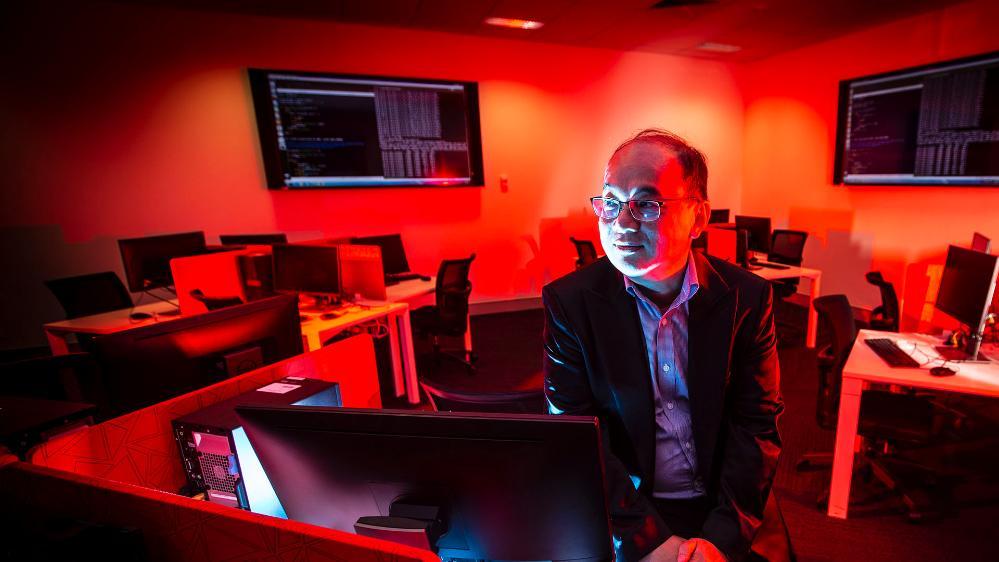Research to address clean energy needs of the next technological frontier

University of Wollongong (UOW)'s Distinguished Professor Willy Susilo has been awarded more than $400,000 from an Australian Research Centre (ARC) Linkage Infrastructure, Equipment, and Facilities (LIEF) grant towards research into green and sustainable energy-efficient metaverse technologies.
The LIEF scheme provides funding for acquisition of key research equipment and infrastructure, allowing Australian researchers to undertake basic and applied research and training. It also prioritises collaboration and cooperative initiatives to allow Australian researchers access to expensive facilities nationally and internationally.
Professor Willy Susilo said his project aims to establish a world-class facility for conducting research on metaverse technologies.
"The metaverse is widely anticipated as the next technological breakthrough that will revolutionise the way we interact, learn, work, shop and entertain in the new digital economy. However, metaverse technologies require a tremendous amount of computation and energy to serve millions of concurrent users.
"The proposed facility is expected to support the development of energy-efficient algorithms and systems for the metaverse and establish Australia's leadership in this emerging area of major economic and societal impact."
UOW's Professor Son Lam Phung, Associate Professor Ashish Agalgaonkar, Associate Professor Yang-Wai Chow and Dr Yannan Li (who was also awarded an ARC Discovery Early Career Researcher Award earlier this year), will also work on the project, which combines the efforts of academics from five Australian universities.
The metaverse is a shared online 3D universe where people can connect and interact virtually through intuitive graphical interfaces. By incorporating virtual reality, augmented reality, mixed reality, and virtual avatar technologies, the metaverse will create a multiuser online platform where millions of people can conduct most of their daily activities.
In recent years, the COVID-19 pandemic has resulted in people and companies worldwide working remotely and shifting their activities online, which has propelled demand for the development of the metaverse.
Gartner, a major technological research and consulting firm, predicts that 25 per cent of people will spend at least an hour per day in the metaverse by as early as 2026.
Professor Susilo's team will begin work to build state-of-the-art research infrastructure that is capable of precise, real-time monitoring of important electrical parameters. They will also conduct research into adaptive energy-efficient technologies that are essential for the metaverse with the goal of integrating these technologies in a prototype energy-efficient metaverse.
Professor David Currow, UOW's Deputy Vice-Chancellor (Health and Sustainable Futures) and Interim Deputy Vice-Chancellor (Research and Innovation), said the ARC LIEF funding would secure access to infrastructure and equipment to ensure innovative research could take place
"The ARC funding shows these ground-breaking ideas have a sound foundation and will enable UOW researchers to keep searching for the next world-changing discoveries in science and technology."
A further six UOW academics will collaborate on projects that received ARC LIEF funding:
- Professor Helen McGregor is part of a group of Australian researchers who will join the International Ocean Discovery Program, the world's largest collaborative research program in Earth and ocean sciences.
- Professor Clare Murphy's team has received funding for a high-resolution aerosol mass spectrometer for micro-plastics and atmospheric chemistry studies. This equipment will support cutting-edge studies on atmospheric processes related to climate, air quality and human health, sustainability, and efficiency enhancement of industrial and energy generation processes.
- Associate Professor Stephen Beirne's funded project aims to establish a new generation metal 3D printing research facility that will allow faster, more cost-effective, and greener 3D printing of complex metal parts.
- Professor Zhenxiang Cheng will be working to establish a world-class cryogenic characterisation facility for materials science and emerging technologies that will allow the direct observation and measurement of various material characteristics.
- Senior Professor Weihua Li is part of a team that will establish a ultra-high resolution 3D printing facility for making micron-sized structures and voids which aims to position Australia as a leader in prototyping and manufacturing of microfluidic devices.
- Dr James Bouwer will work on a project that aims to establish the first fully integrated cryogenic correlative focused ion beam instrument in Australia. Focused ion beam microscopes are rapidly evolving instruments that harness the properties of ions to remove unwanted material from specimens.






